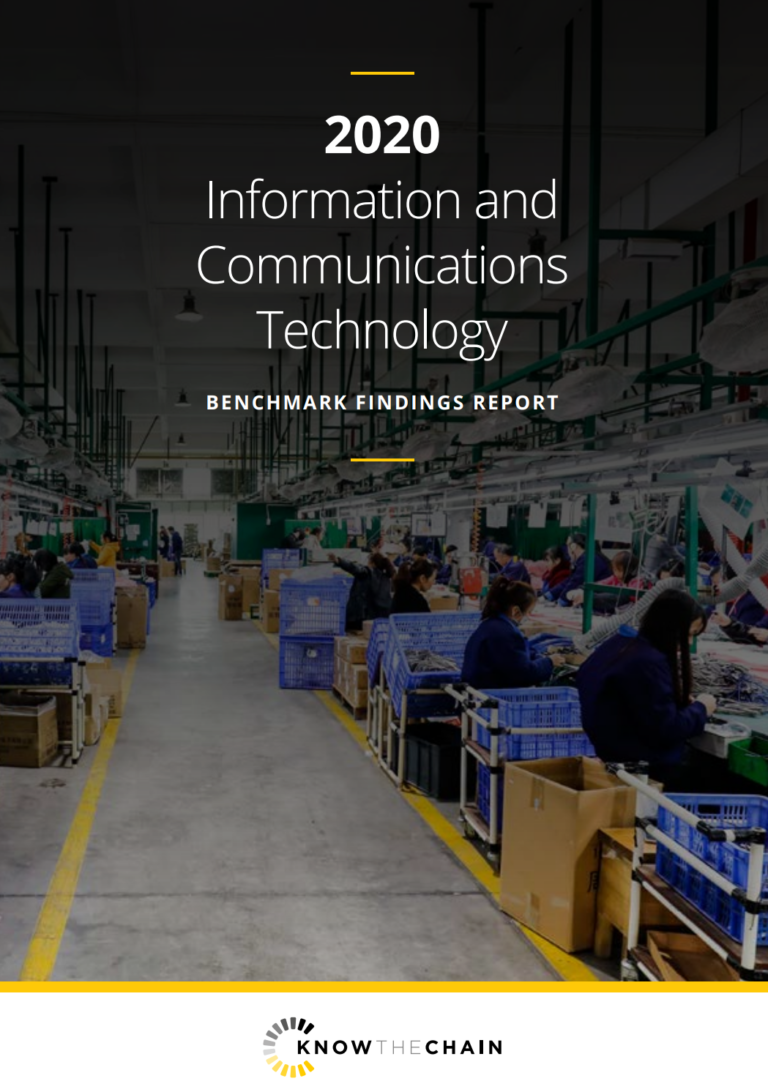The global electronics sector is comprised of powerful corporations—the 49 largest information communications and technology (ICT) companies have a combined market capitalization of US $5 trillion and combined annual profits of almost US$1 trillion. This brings with it a duty to prevent and address forced labor in the ICT sector’s supply chains, particularly when crises such as Covid-19 exacerbate factors that render workers vulnerable to forced labor.
This report analyzes the disclosure and performance of 49 companies against seven benchmark themes, and it provides good practice examples and recommendations for companies as well as recommendations for investor action. It also highlights the nature of forced labor risks in the ICT sector and explores the role of industry associations. Finally, it shines a light on changes in company practices over time and highlights how companies address forced labor risks in the lower tiers of their supply chains.

